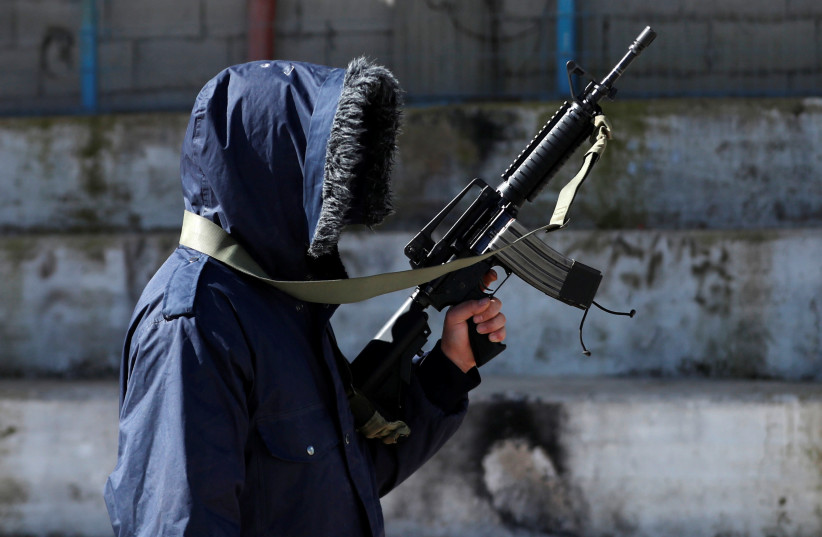For years now, guns have been doing immense harm in the United States, Europe and elsewhere. Hundreds of innocent people have been killed; thousands have been wounded. Whatever the perpetrators’ motives, they have turned normal daily life, like going to school, the shops or praying in shul, into something over which they are frightened. They have made ordinary members of the public into vulnerable and shaky individuals whose lives are in constant peril.
Whoever the victims are, whether Jewish or gentile, black or white, male or female, whatever sexual orientation, young or old, they can no longer hope to “sit under their vine and under their fig tree with none to make them afraid” (Micah 4:4). Everyone is in danger of being wantonly mowed down, which is probably the worst crime there is (Exodus 20:13), even if the killing is unpremeditated (Numbers 35:11).
This article is not primarily concerned with government gun policies but with the moral issues that arise from the point of view of Jewish law, tradition and ethics.
There are four main problems with guns:
The gun itself is a means of doing harm. In Jewish law, a person must not own a dangerous dog (Bava Kamma 79a). Someone who has a dangerous dog must keep it under restraint at all times (Hoshen Mishpat 409:3). Even a dog that is unlikely to do harm must be kept under restraint because it can frighten people (Shabbat 63b). The gun is like a dangerous dog, if not worse.

The best policy is that nobody should own a gun and if they do, they must keep it under severe restraint. Not only guns but any potential means of harm, though guns seem to have a worse potential for harm than many other dangerous dogs. Once upon a time when we were children we used to point toy guns at each other and say, “Bang, bang, you’re dead!” These days, however, it’s no game, the guns are for real and they’re far worse than toys.
The gun-runner with a neurosis. No one can arrogate to themselves a right to disown, dismiss or disrespect another person. No one can claim (in the words of Talmud Pesahim 25b) that their blood is redder than mine or anyone else’s, and that the world is better off without the people they have killed or maimed. Perpetrators of harm must be findable. They must be found, identified and shown no mercy.
Society must teach them a harsh lesson in relation to any crime they have committed and deter them from wrongful acts in the future. The rule in Jewish ethics is that the community has a duty to remove or prevent any safety hazard (Bava Kamma 15b).
THE MOTIVATION: those who bear guns and use them against other people are entitled to disagree with others but they have to realize that the issue is not only Black Lives Matter (BLM) but All Lives Matter (ALM). Society must train all its members to handle differences decently, in a law-abiding and peaceful manner. It cannot let people resort to violence even if they are aggrieved, angry, anxious or afraid. Education must train people towards good citizenship with concern for the rights of others. If people want to be prejudiced, let the prejudice be constructively discussed.
The potential victim: a person must not place him – or herself in a position of danger (Deuteronomy 22:8). That doesn’t mean that nobody should go to school or the shops. Since schoolchildren are now especially vulnerable, the adult community must protect them as firmly as possible by appropriate security measures at school gates.
This does not imply that teachers should be armed, which simply makes the problem worse. Visible measures must be put in place at centers of business and commerce and at entertainment or sporting arenas. Everyone should have the Bible-given right to enjoy their own vine or fig tree (Micah 4:4). Nobody may “sit by when your fellow’s blood is shed” (Leviticus 19:16).
Some gun owners will insist that they have valid reasons to possess weapons and that gun ownership is a mark of human liberty. Their case may occasionally have an element of validity but because a society must remove or prevent any safety hazard (Bava Kamma 15b), we cannot have any sympathy with those who think that all gun-toting is kosher.
Guns are dangerous dogs that put everyone at risk. They should be placed on a register that will be regularly checked and monitored. Until the time comes that life can rid itself of weapons, when “none shall hurt or destroy” (Isaiah 11:9), it might be necessary to allow an interim ethic that occasionally tolerates gun ownership.
But in this interim, decent gun owners will have to be prepared to abandon their weapons and recognize that citizen discipline (and self-discipline) are essential in order to make life livable. The historian Arthur Bryant wrote, “The real problem is not how to ensure the survival of the human race, but how to ensure the simultaneous survival of both civilized society and human and political liberty.”
The writer is an emeritus rabbi of the Great Synagogue, Sydney.
